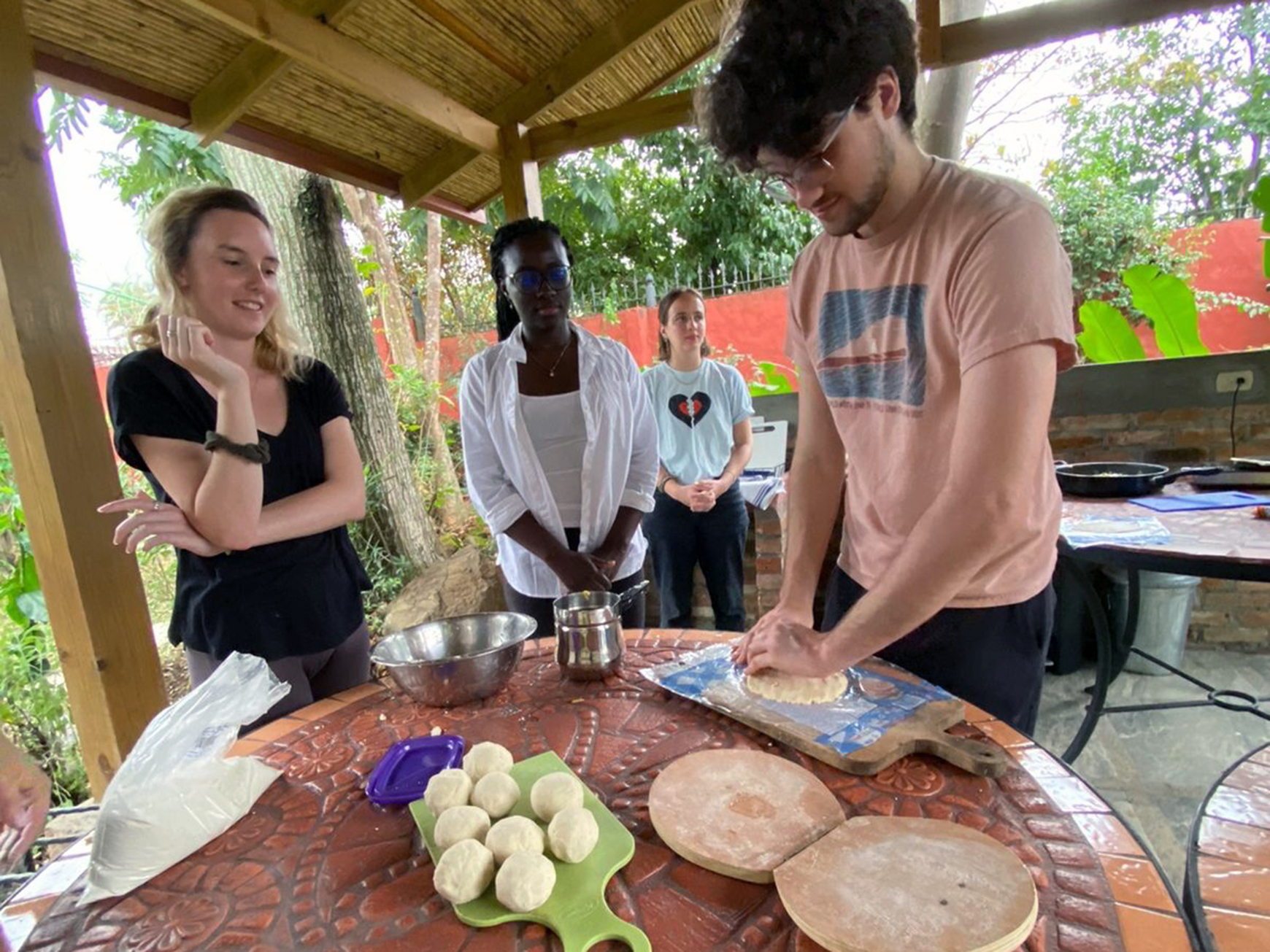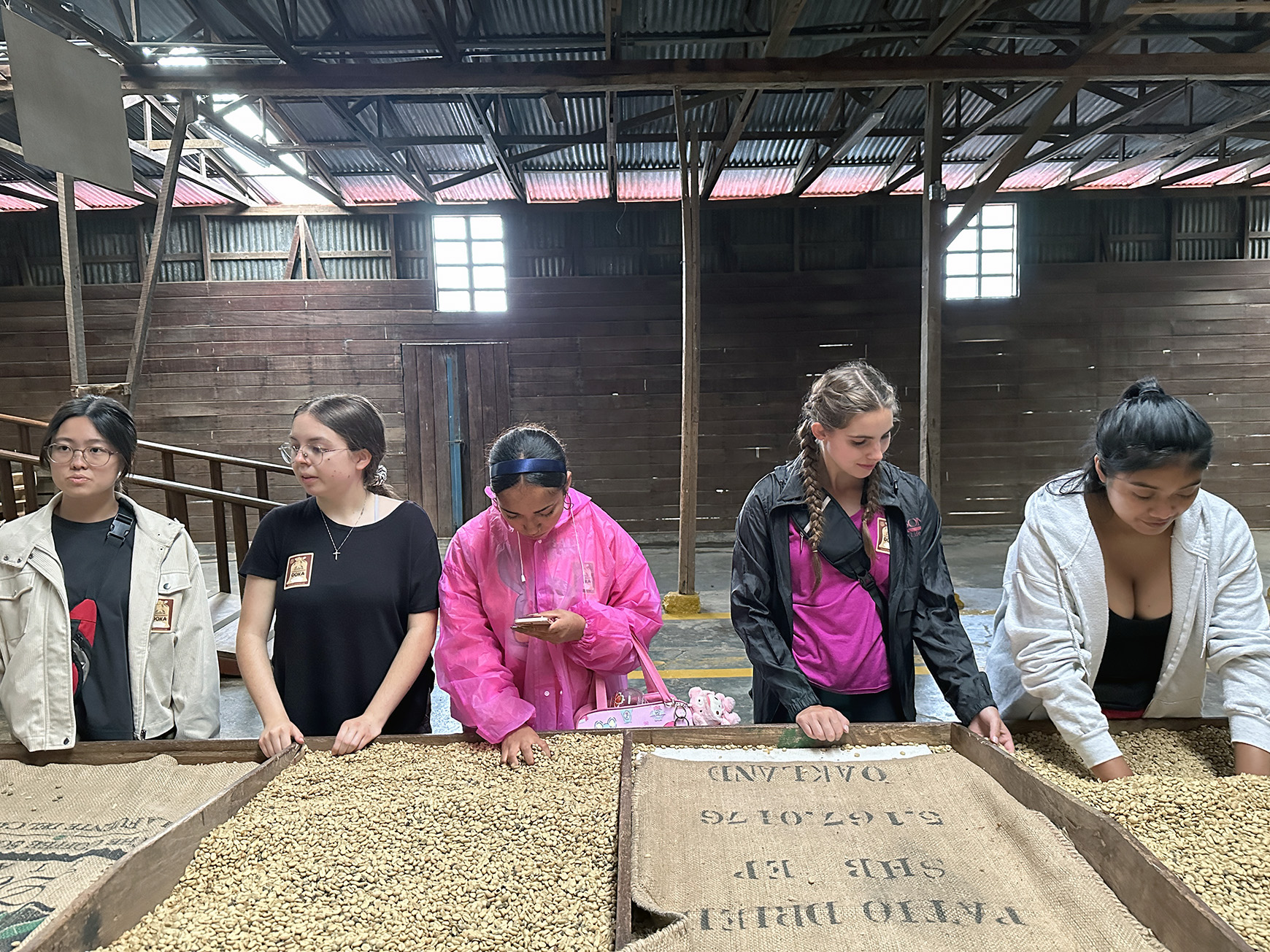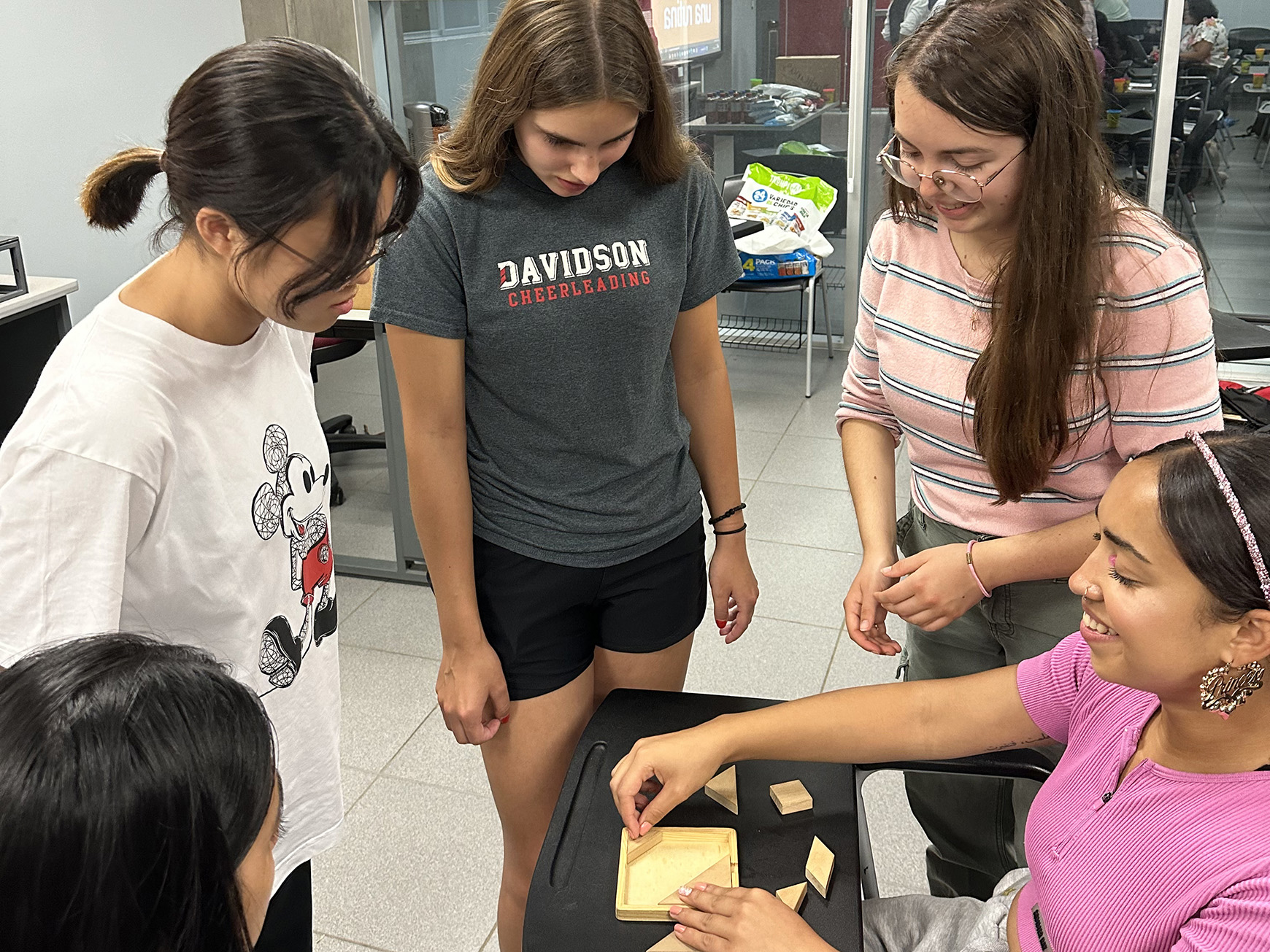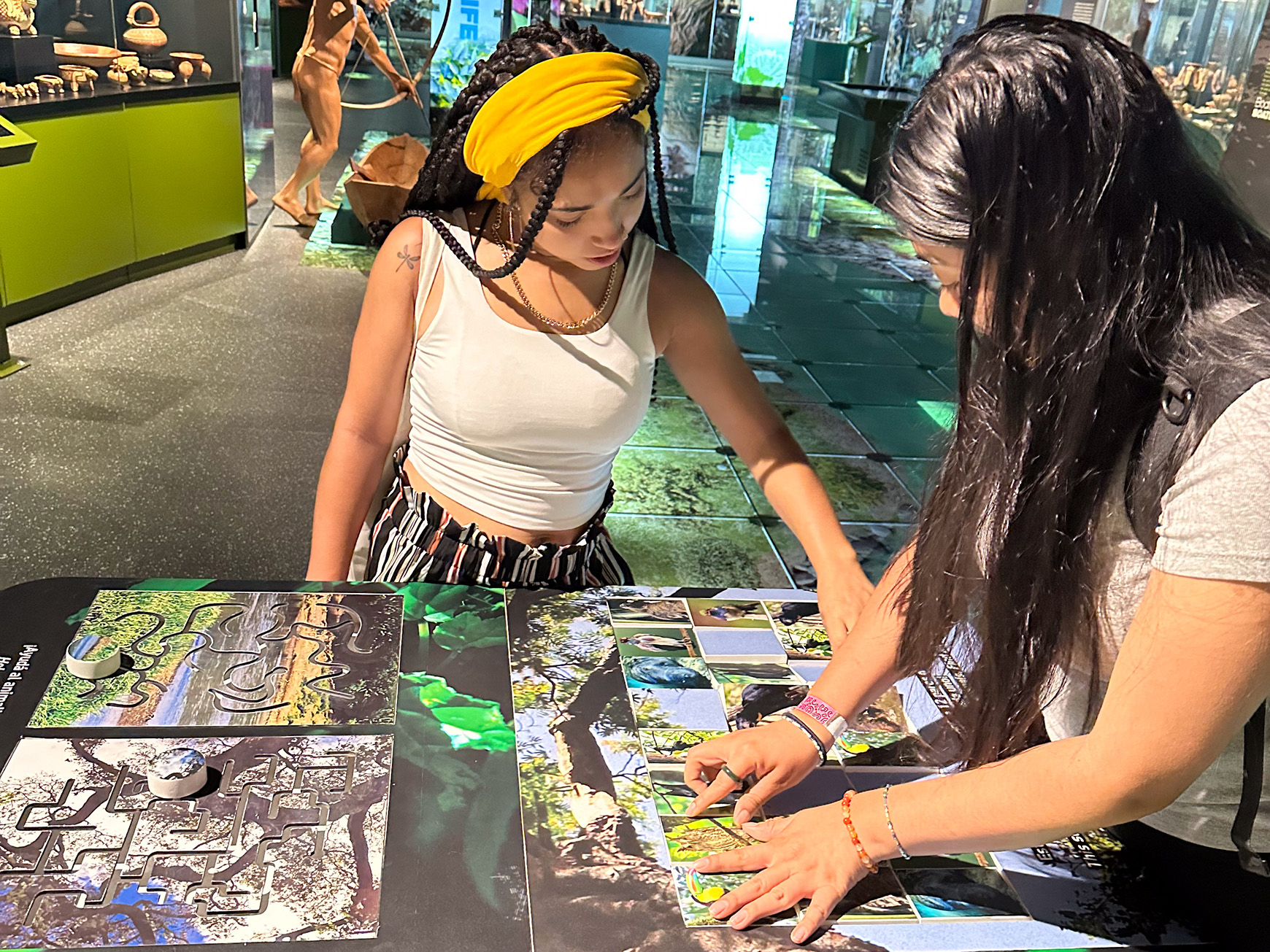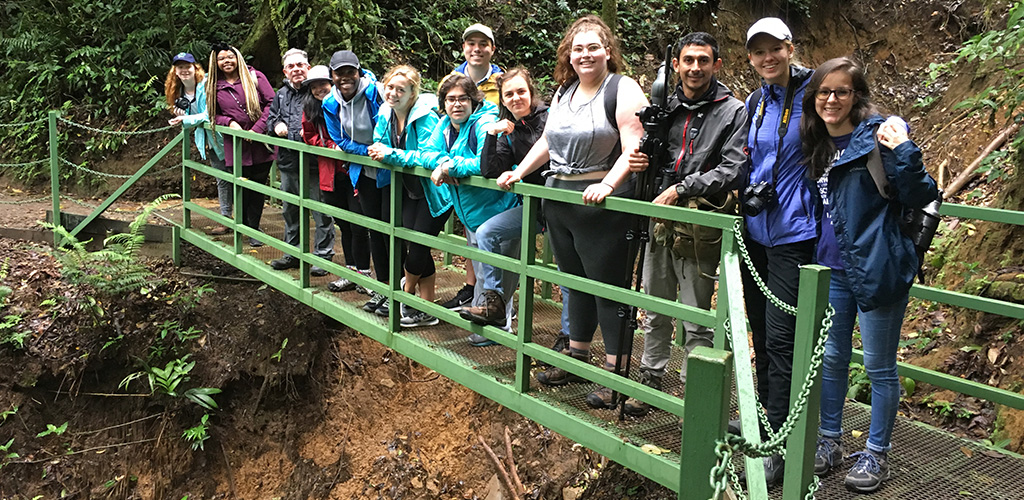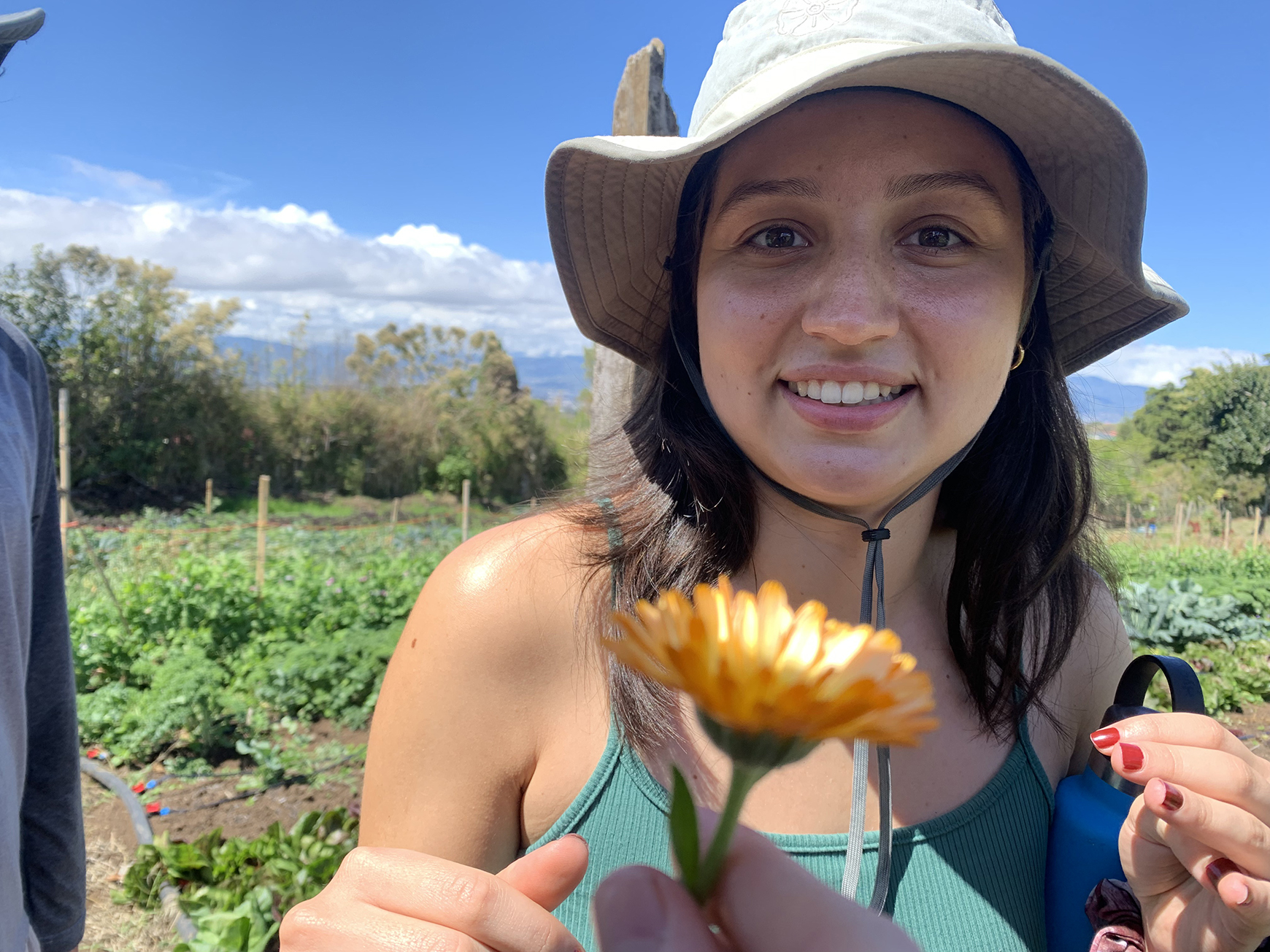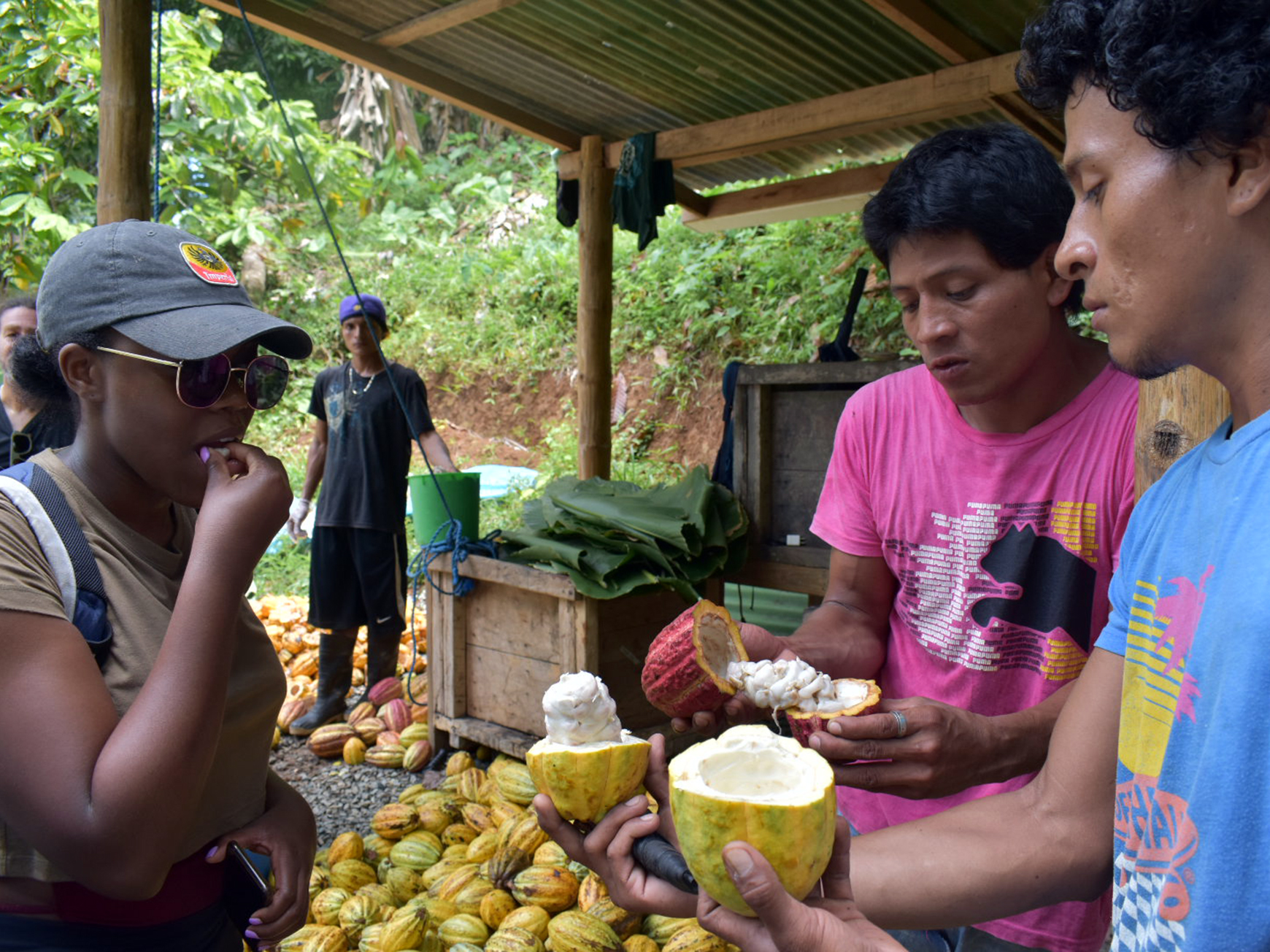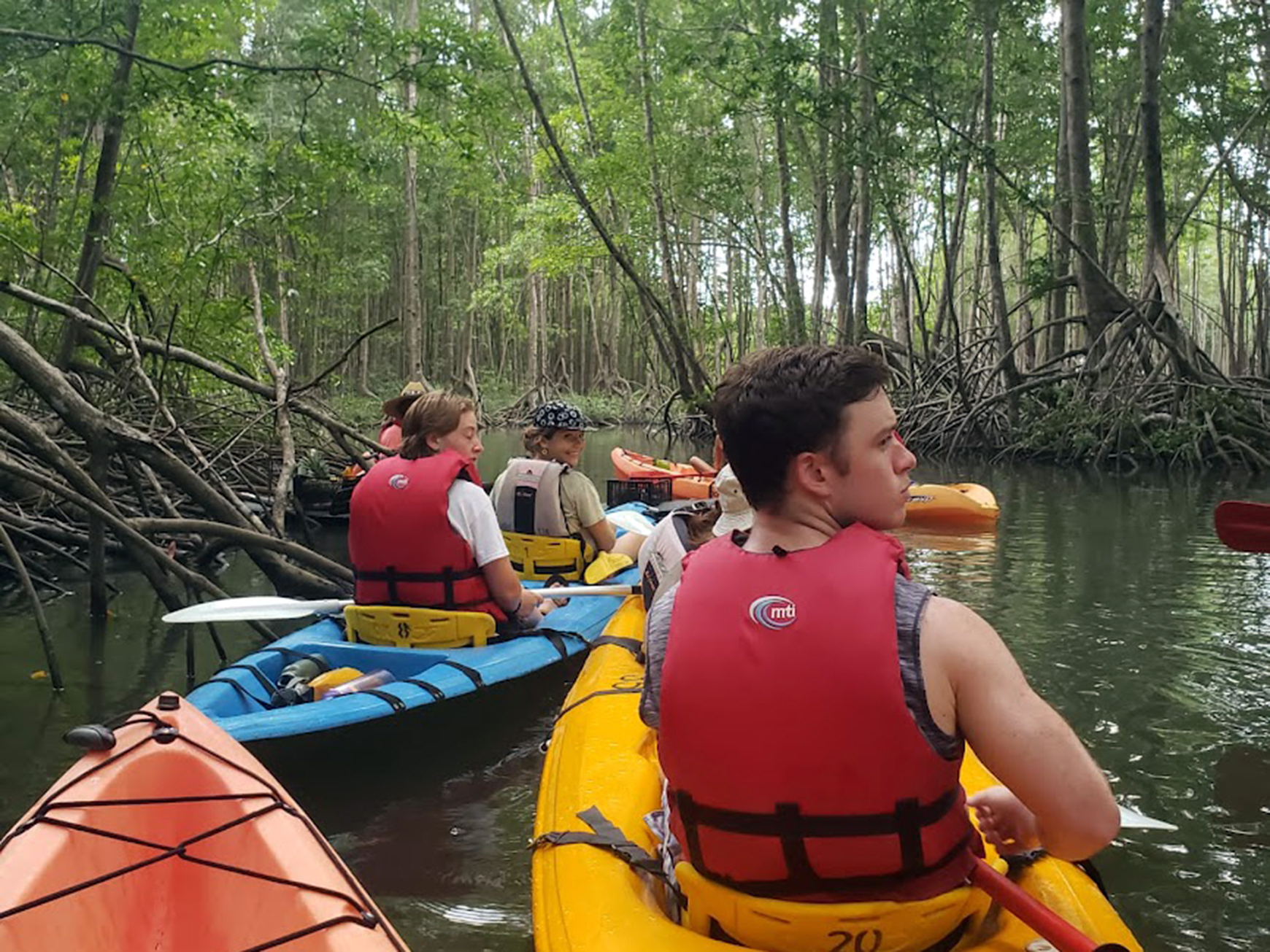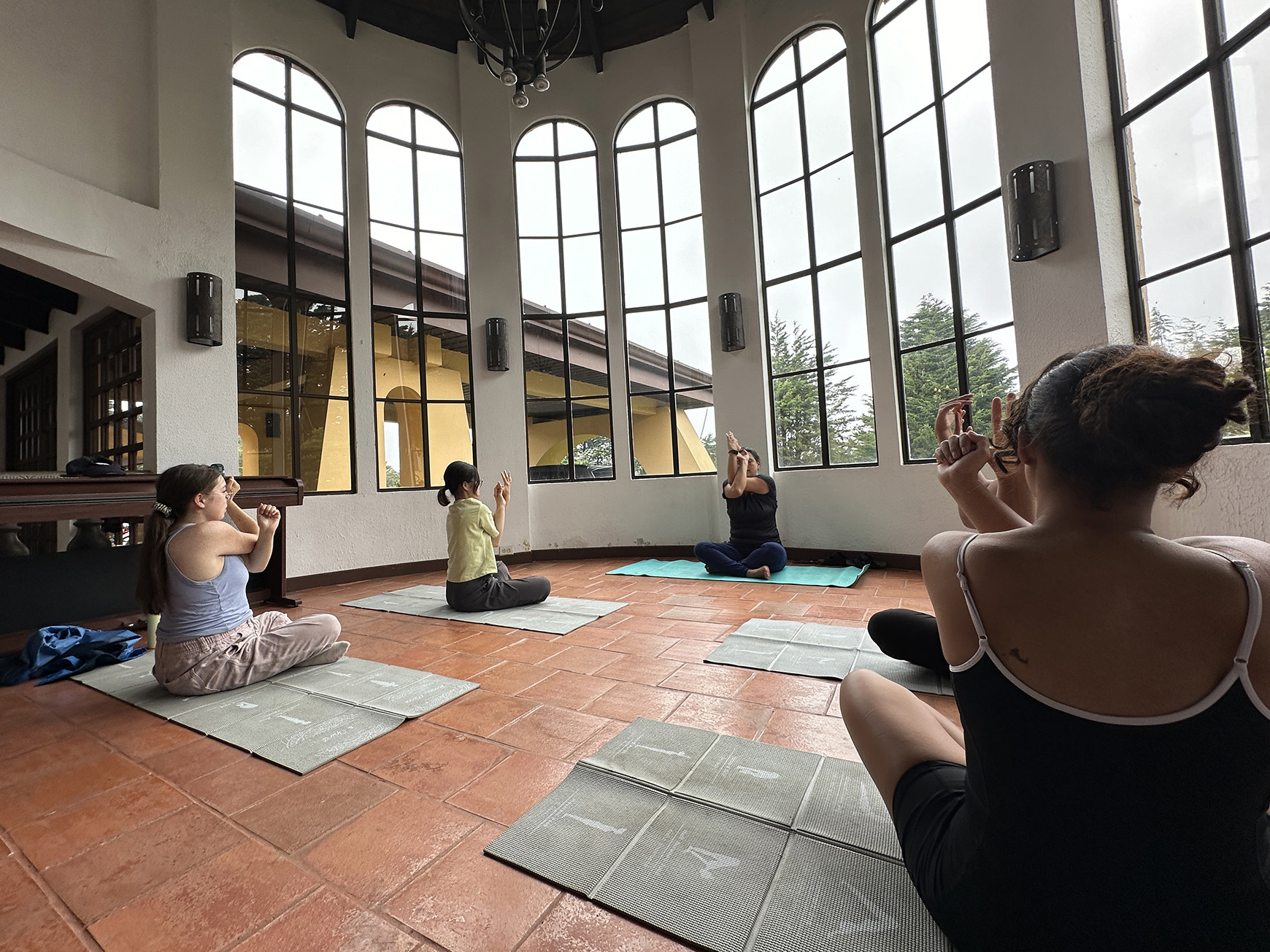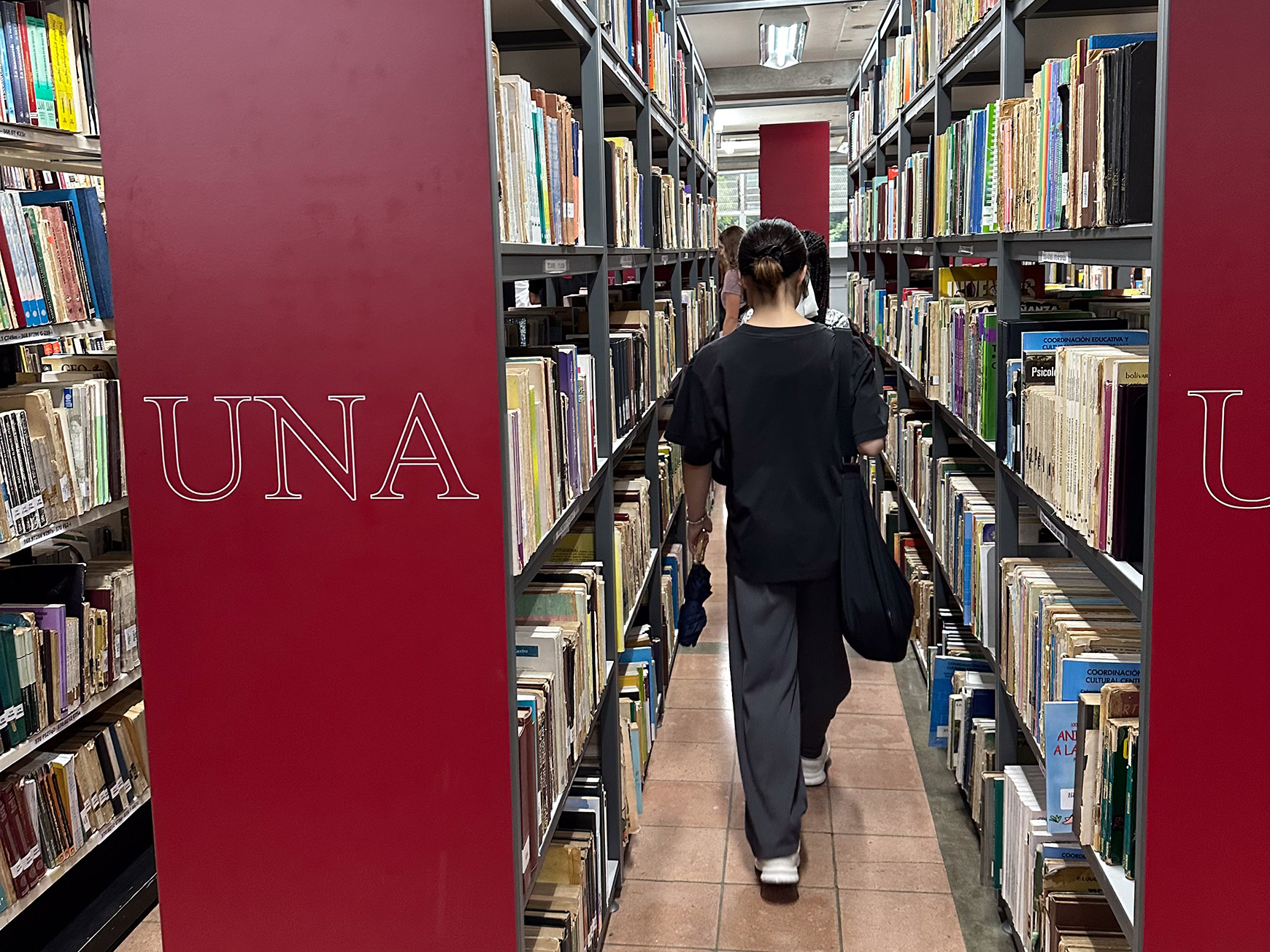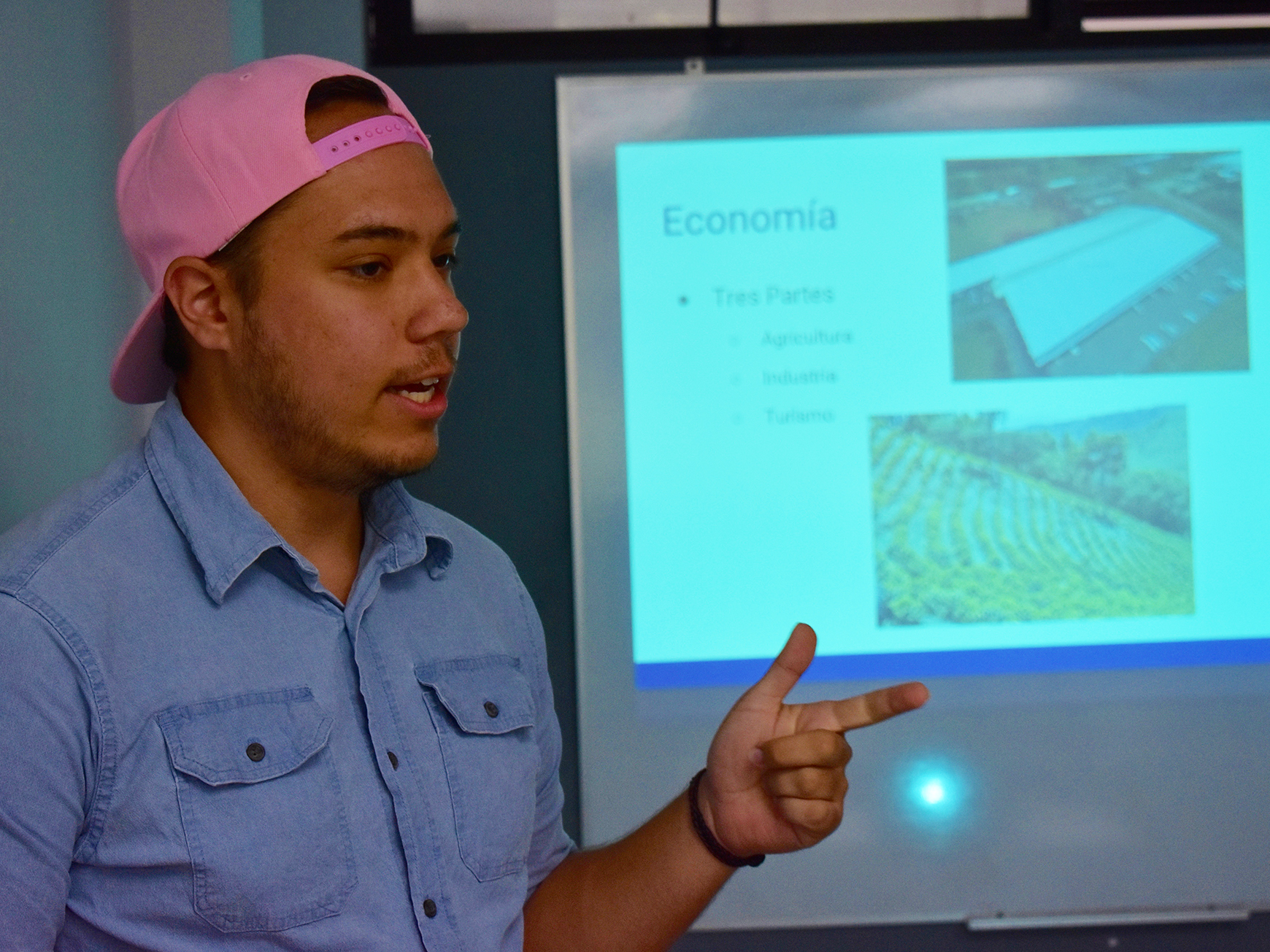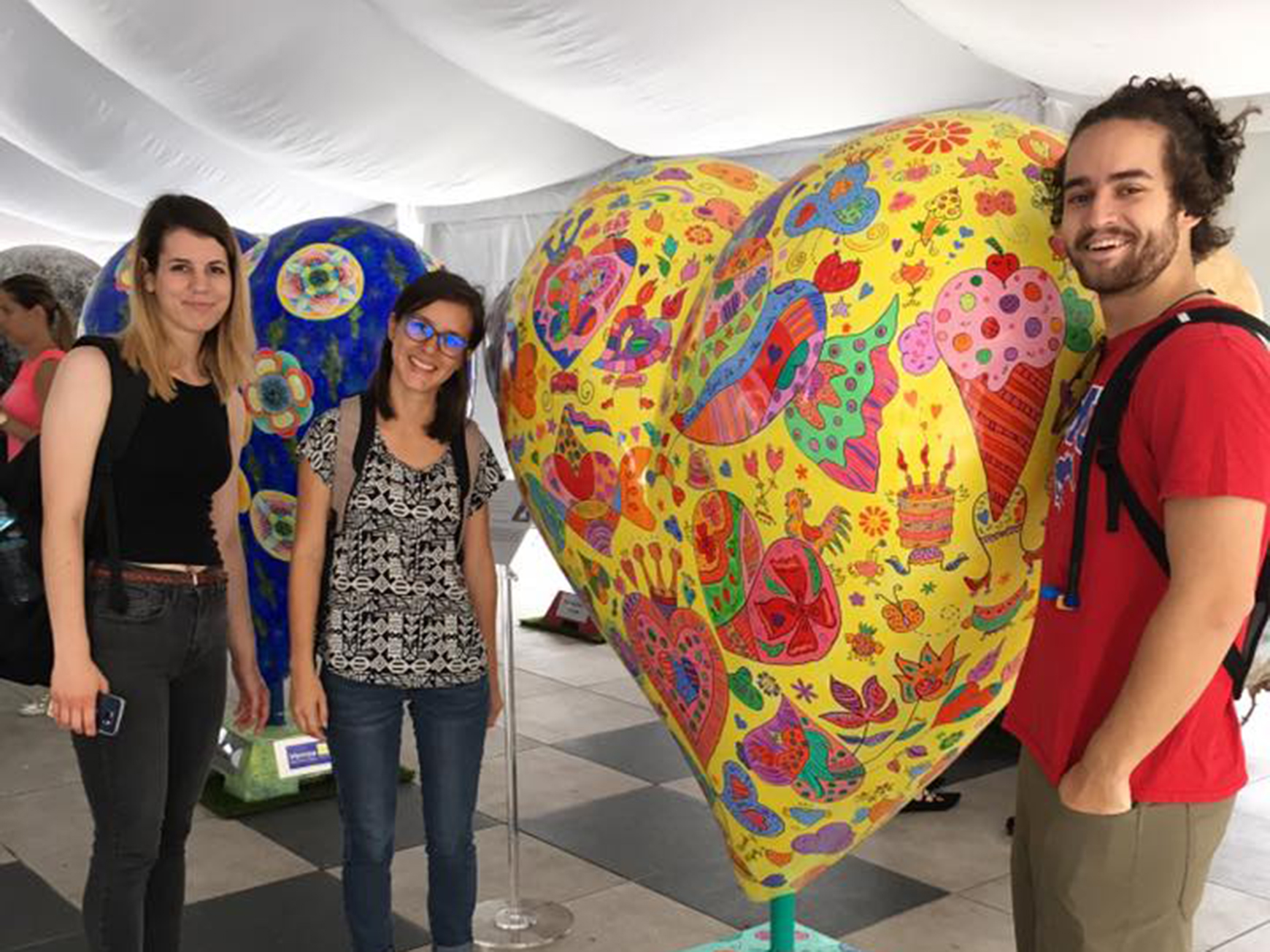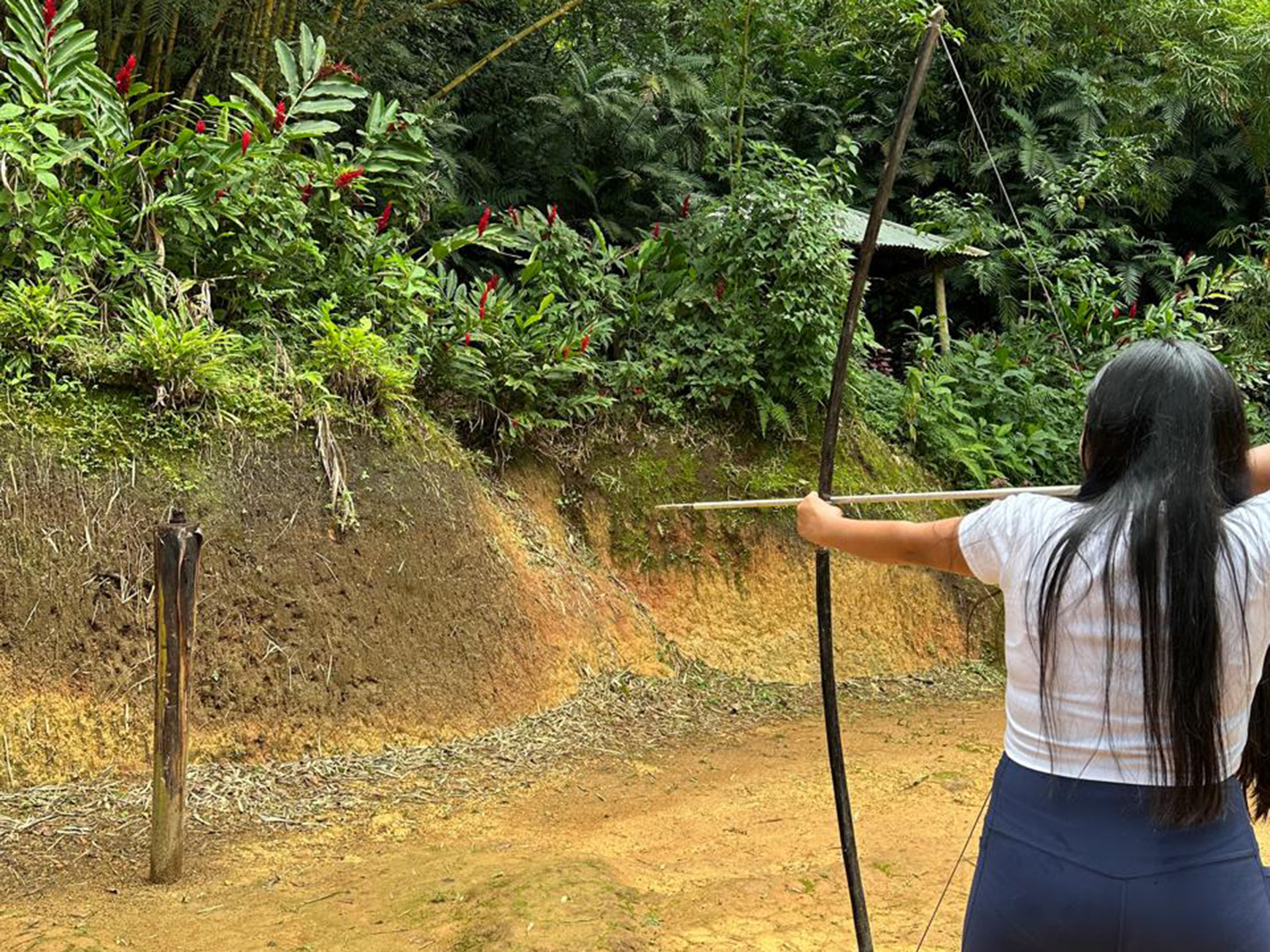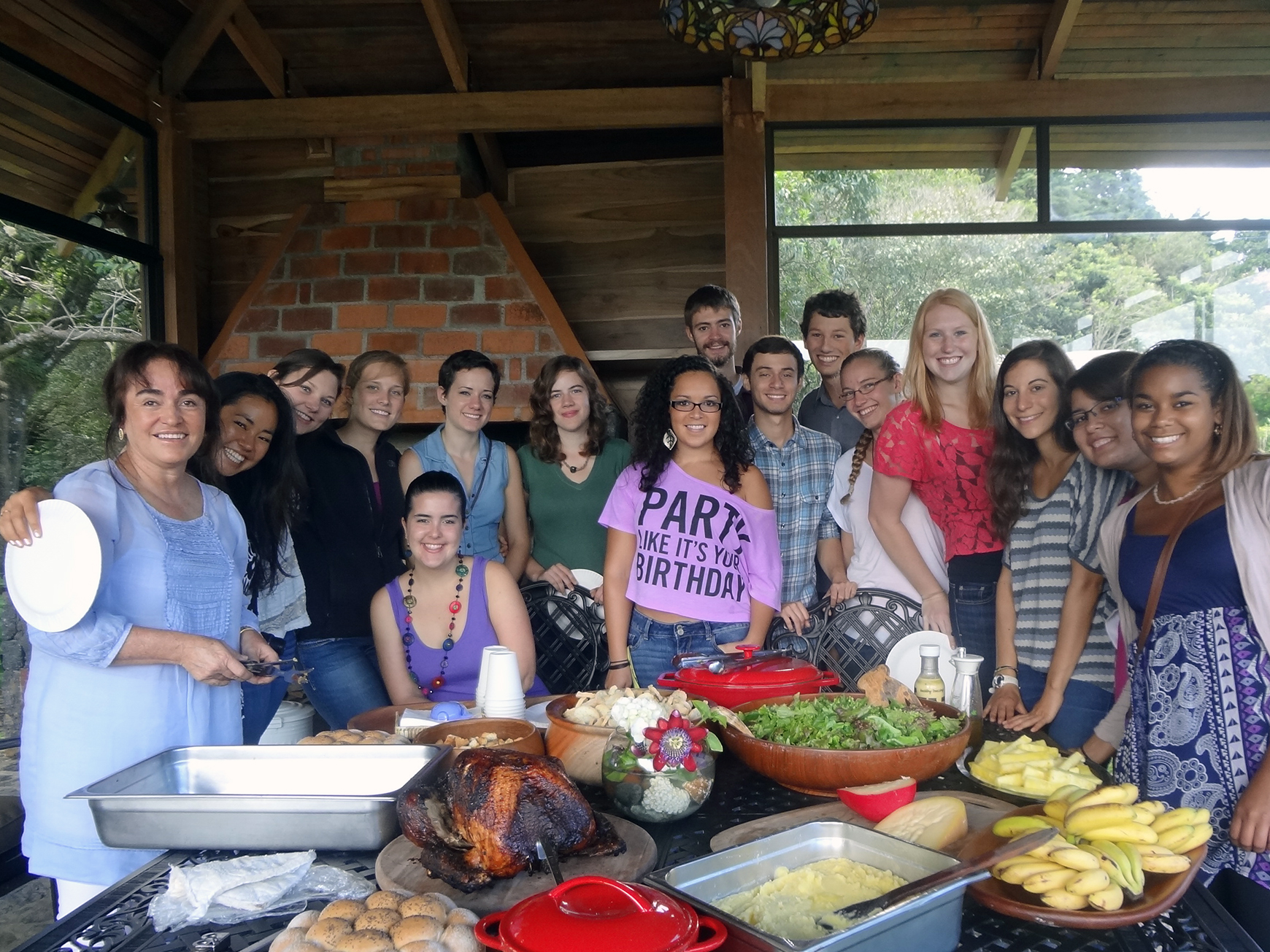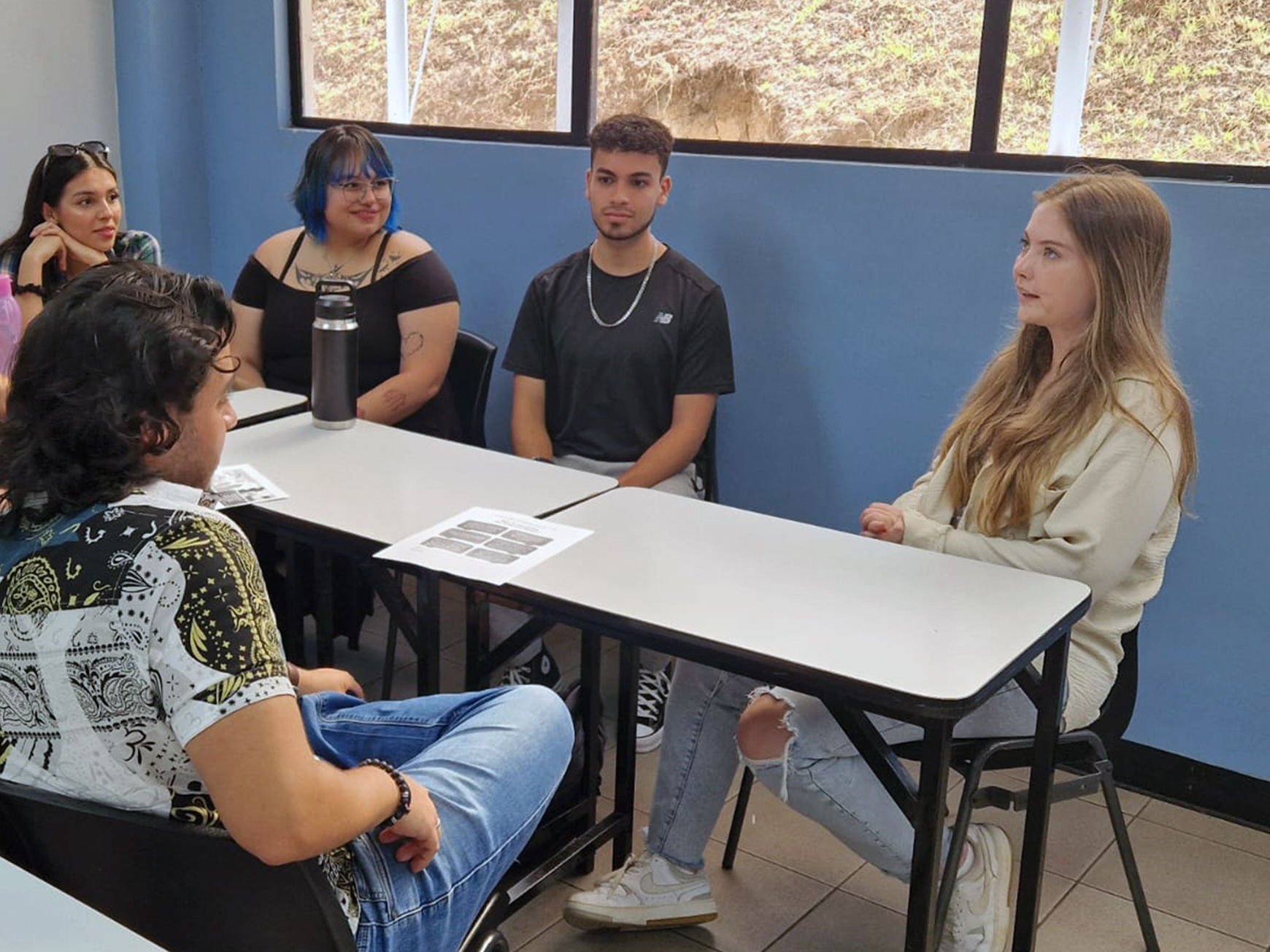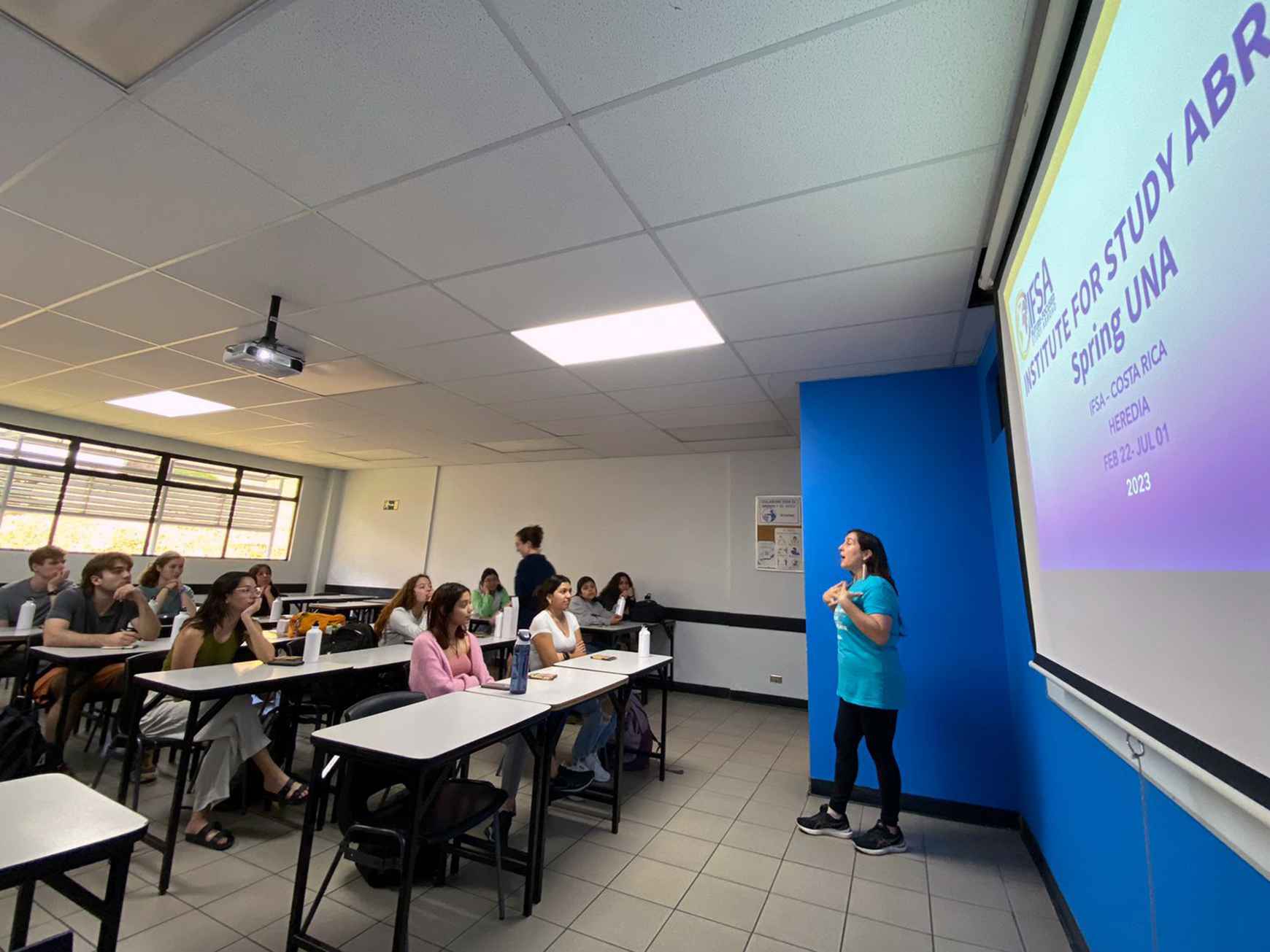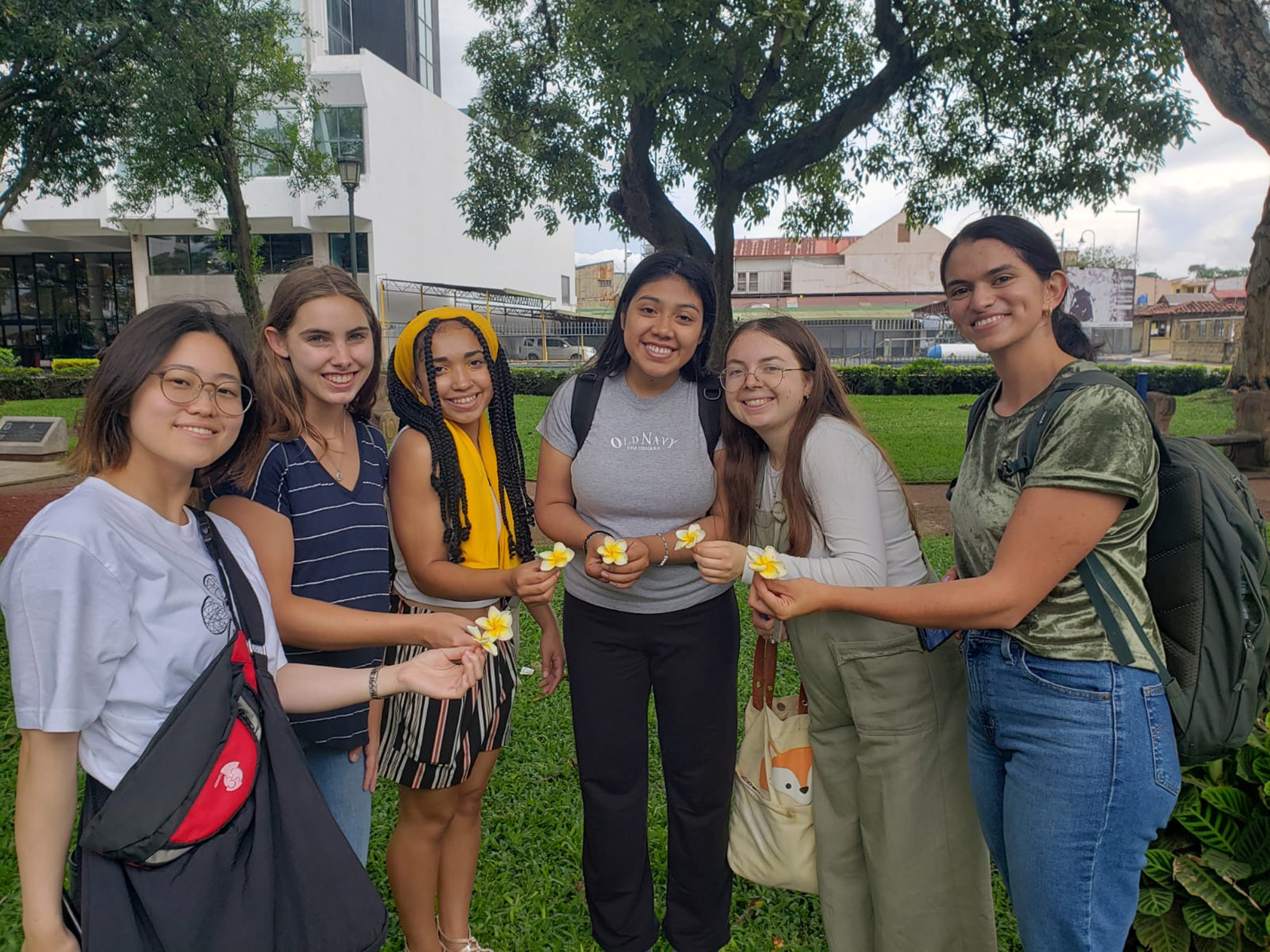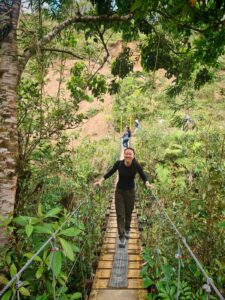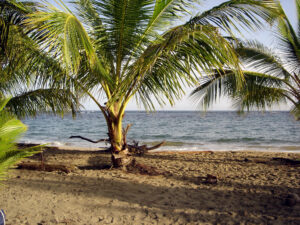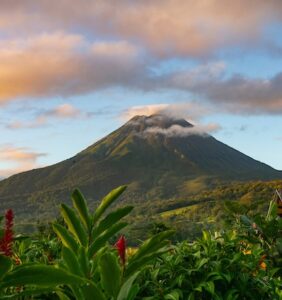Heredia, Costa Rica
Universidad Nacional Partnership
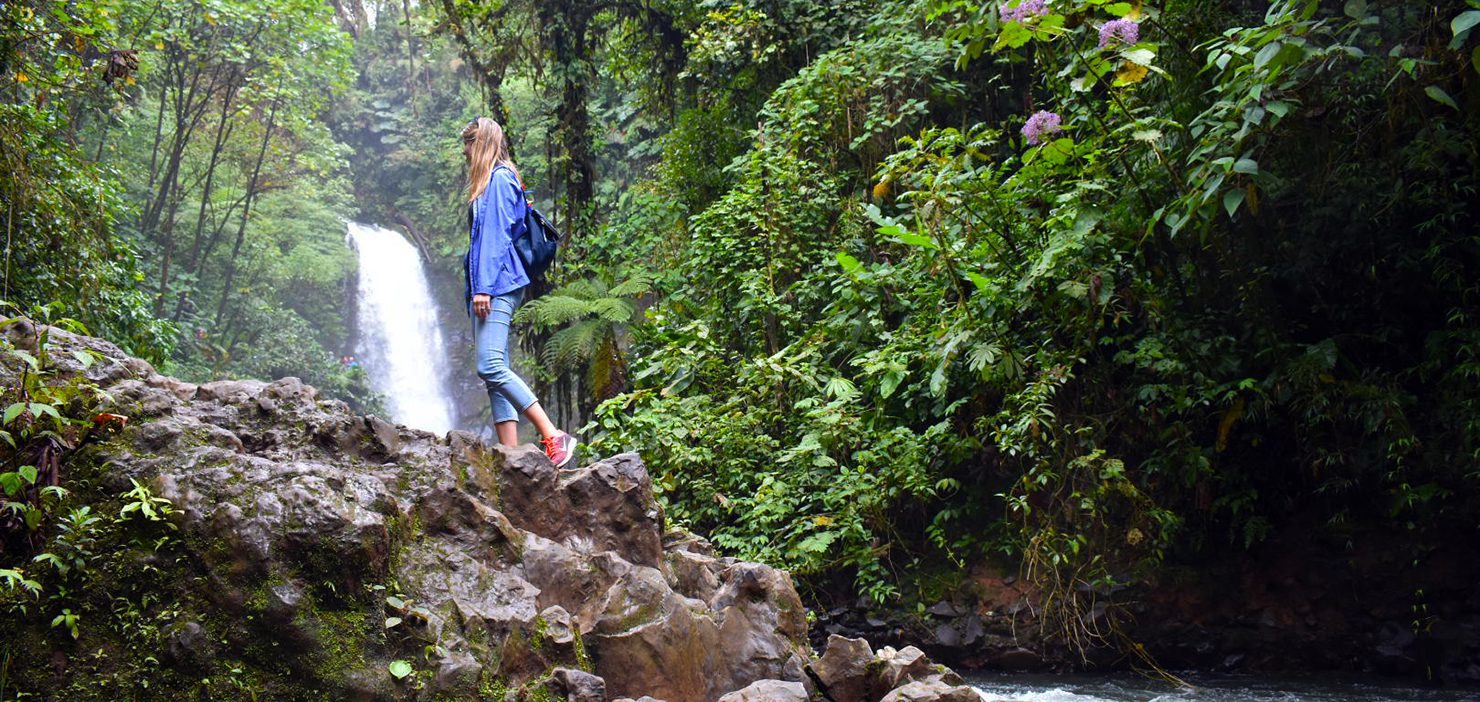

Program Overview
CULTIVATE FLUENCY IN SPANISH, INDULGE YOUR LOVE OF THE OUTDOORS
In Heredia, it’s easy to combine an interest in sustainable living and passion for nature with aspirations to take your Spanish language skills to the next level. Universidad Nacional de Costa Rica (UNA) offers top-ranked academics taught in Spanish, in a country known to put education first. After class, explore the Mercado Central or go for a hike. This small, walkable city sits in Costa Rica’s central valley, surrounded by beautiful mountains and coffee plantations, with trails a 15-minute bus ride from UNA.
Details at a Glance
Application deadline
Minimum GPA
2.75
Credit load
15
Housing
Single Room Option, Homestay
Instruction language
Spanish
Language prerequisites
Four semesters of university-level Spanish or equivalent
Visa required?
Not in most cases. Learn more.
Academics
Join an exciting, diverse student body in smaller class sizes at the Universidad Nacional. In addition, take advantage of IFSA Spanish class options to further enhance you language skills. All classes are instructed in Spanish.
Advanced Spanish I or Advanced Spanish II
Language of Instruction: Spanish
While in Costa Rica, you can opt to continue your Spanish language study. A mandatory pre-arrival language assessment will determine your appropriate language level. Based on your score, IFSA may require you to take a Spanish language class to support your academic success in Spanish-taught direct-enroll classes. (3 U.S. semester credit hours)
Beyond Borders: Local Solutions Driving Global Sustainable Development (Coming Spring 2026)
This course delves into the United Nations Sustainable Development Goals (UNSDGs) and the pressing global challenges impacting our world today. Through an interdisciplinary approach, students will explore critical topics such as poverty, hunger, inclusive practices, environmental protection, and sustainable living within the context of their study abroad host country. By analyzing local contexts and investigating mitigation efforts, students will gain a nuanced understanding of how these global challenges manifest and how diverse perspectives can be integrated to address them ethically and effectively.
Throughout the course, students will engage in critical evaluations and reflections to develop their personal agency in addressing global problems. They will explore and compare international, national, and local responses to these issues, fostering an informed and ethical approach to sustainable development. The course emphasizes active engagement and ethical considerations, preparing students to contribute meaningfully to the wellbeing of communities worldwide (3 U..S semester credit hours)
Universidad Nacional
As an IFSA student, you will enroll in undergraduate courses for which you are qualified and space is available.
While course descriptions may be found online, course syllabi may not be available until the beginning of your semester. Click here for the online course catalog and follow these steps:
- Click on a departmental link (“leer más”) in which you would like to look for courses.
- Next, click on “descargar plan” to download a PDF of the course listings in the Carrera
- You will see a tentative list of courses that may be offered during the year.
*Please note that UNA’s online course listings are not often comprehensive. If a particular department or course you are looking for is not listed, contact your IFSA Enrollment Counselor for assistance.
If course descriptions or syllabi are not available online, contact your IFSA Enrollment Counselor. Provide the following information in your request, and keep in mind this may take up to a month to obtain.
- University department/facultad
- Course title
- Course number (if available)
CHART Your Course
Find the classes you need fast with CHART. Our easy-to-use tool shows you classes recently taken by IFSA students
Language Requirement
To enroll in Spanish-taught classes, you must have a specific language level. Please visit our Language Requirements page for more details. If you have questions about whether you qualify, contact your IFSA Enrollment Counselor.
Class Restrictions
- All classes are conducted in Spanish by UNA faculty members. Resident staff will work personally with you to identify the best classes to match your Spanish language level and academic interests. You can also take advantage of academic and Spanish language tutorials to support you throughout the semester.
- You may only take one class from Estudios Generales and one class from Escuela de Arte.
- Licenciatura-level classes, such as those located in Estudios Latinoamericanos (IDELA), are only available to students with an extremely high level of Spanish and currently hold senior status at their U.S. institution.
- The Escuela de Literatura may limit enrollment in literature classes to students with very good command of the language, have received high grades in previous Spanish classes, and who place into a higher level of Spanish during orientation.
- Nivel 1 corresponds with first-year classes; Nivel 2 corresponds to second-year classes, etc.
- I Ciclo (primer ciclo) is a U.S. spring semester (January to July); II Ciclo (segundo ciclo) is a U.S. fall semester (July to December)
- Anual refers to full-year classes.
- When the word Latina appears alone in a class title, it means classic, not Latino ethnicity. This applies mostly to literature classes.
New country, new way of learning!
Here’s what to expect at Universidad Nacional:
- Common to have a large lecture class complemented by a smaller tutorial/lab for the following subjects: engineering, forestry, agronomy, chemistry, and biology.
- More emphasis on independent learning. More self-directed learning outside of class. Coursework outside of the classroom can vary. You will receive finalized syllabi once on-site.
- The university follows strict policies and deadlines.
- Class assignments may include reading analyses, individual and group presentations, essays, and more.
- Grade inflation and curving are uncommon; fewer students get exceptional grades.
- Strong focus on critical analysis with supporting resources documented.
- Students cannot audit courses.
- Full access to the university’s robust academic support system and resources. IFSA local staff are also available for individual help.
- More information can be found in the IFSA Student Portal under Resources – Helpful Documents and Links and Academics.
APPLICATION REQUIREMENTS
Eligibility
- You must be at least 18 years of age. Students under 18 may be accepted on a case-by-case basis.
- You must be currently attending or recently graduated from a U.S. or Canadian community college, technical college, two-year college, four-year college, or four-year university.
- You must have completed at least one (1) full-time semester of study at your home institution before the beginning of the term.
- Eligibility requirements can vary among host institutions. Please ask your IFSA Enrollment Counselor for specific information.
Recommendation Letter
Not required.
Language Requirement
Four (4) semesters of college-level Spanish or an Intermediate II level proficiency is required.
TRANSCRIPT
Upon completion of your program, IFSA will send an official Butler University transcript to your home university with your coursework converted to the U.S. semester credit hour system. You will also have access to an unofficial transcript in your IFSA Student Portal. The transcript reflects classes taken, credits attempted, and grades earned during your term abroad. This service is included in your study abroad program at no additional cost. See our Transcripts page for more information.
Excursions
Activities and excursions are designed to pull you into the communities you visit and encourage cultural connections of every kind. There’s no extra fee to participate in these optional outings—everything is included in your program fee.
Below are a selection of activities and excursions from previous terms; options may vary for your program. Due to the seasonal nature of many of program activities, we cannot guarantee a specific activity or excursion will be available in a given term or program.
Activities
- City-as-Text Activity: Visit Heredia and San Jose to explore the contrasts between two important economical centers and see their most important landmarks.
- Sarchi Oxcart Painting Workshop: Take part in a long-standing local tradition as you help paint traditional wagons once essential for transporting goods and people.
- Latin Dance Class: Explore the different shades and nuances of Latin rhythms with guidance from local peers, the AMIGXS TICXS. They’ll offer up tips, joy, and their passion for dance.
- Sustainable Chocolate Production Experience: Visit Bicichocolate, a bean to bar experience in artisanal and sustainable chocolate production, and learn how it connects with the local economy, small businesses, and cultural traditions.
- Migration workshop: After watching a documentary on migration in Latin America, participate in a discussion focused on the Costa Rican reality with a panel of experts.
- Gender Identity in Costa Rica Workshop: Participate in a workshop on diversity and gender identity topics in the Costa Rican context with professionals in the areas of psychology, socio-political processes, and women and gender studies.
- Visit to an Indigenous Territory: Explore the rich cultural traditions and heritage of one of Costa Rica’s indigenous communities. Learn about their customs, crafts, and daily life, and try your hand at traditional activities like pottery or archery.
- Volcano and Local Crop Experience: Discover one of Costa Rica’s iconic volcanoes with a short hike offering breathtaking views of its crater and surrounding landscapes. Combine this with a visit to a nearby farm to learn about local crop production, such as coffee or strawberries, and enjoy tastings of fresh, locally grown products.
- Cloud Forest and Sustainability Experience: Immerse yourself in a tropical cloud forest and learn about sustainable environmental practices and conservation efforts. Explore the trails with a guide while observing the region’s diverse flora and fauna.
- Family Farm and Agricultural Traditions: Visit a traditional family-run farm to gain hands-on experience in Costa Rican agriculture. Participate in farm activities, taste farm-to-table refreshments, and enjoy the natural surroundings, including rivers and hiking trails.
Housing and Meals
Housing
Single Room Option, HomestayMeals
All IncludedDetails
In Costa Rica, students live in the province of Heredia with families in what’s called a homestay. Homestays are a fabulous way to soak up as much culture as you can and provide plenty of opportunity to make language gains. Many students keep in touch with their hosts after they return home.
Homestays: Who’s at home?
We place students with carefully screened families in safe neighborhoods, with up to two students per family, though students can request to be placed individually. Many families have been hosting IFSA students for years. Often, they have grown children who have left home, and enjoy having young people around.
You might live with a retired couple and their beloved terrier, with frequent visits from their young grandchildren. Your hosts might have high school-age children and a grandparent living with them. Or you might join a single mom who shares her home with her adult daughter and grandson, with another adult child living nearby.
- Location. Most students live in Heredia within an easy walk or bus ride to the university and downtown areas. Some live in nearby small cities with easy access to excellent public transportation that makes it easy to get around. Though these are urban areas, there’s no shortage of greenery.
- Commute. No more than 20 minutes on foot or by bus to Universidad Nacional, where IFSA has an office on Campus Benjamin Nuñez.
- Living space. Most hosts live in houses. Expect to have your own bedroom, likely smaller than a typical U.S. space, and share a bathroom with other family members. Hosts provide a desk or other suitable place to study.
- Language. Few families are fluent in English, but most can communicate. We do our best to place students without Spanish skills with English-speaking families.
- Meals. Three meals a day included. Students occasionally eat out with friends and buy snacks independently. Hosts appreciate a heads up in advance if you plan to eat out.
- Other details. Hosts do your laundry once a week. Keep in mind that washing machines tend to have smaller capacity here than in the U.S.
“One of the biggest highlights of my study abroad experience was staying with my host family. My host mom and dad would always ask how my day was when I got back from school, and they went out of their way to make sure I felt welcome in their home. They included me in family activities like taking me to a nearby waterfall, bringing me to an outdoor concert, and introducing me to their extended family and friends throughout my time with them. When I was sick they took care of me as if I was their own daughter and made sure I had the support I needed to get better quickly. My Spanish also improved significantly because I was able to practice with people I was comfortable with every day. I felt like a part of their family during my time in Costa Rica and I can’t wait to go back to visit them in the future.”
Shayla Rose-Brown | Soka University of America
Dates and Fees
Get Started
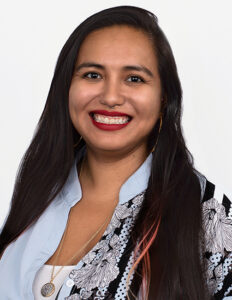
Selena Rincon
Senior Enrollment Counselor
